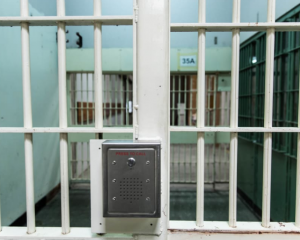
It’s also likely that contests for pipers, dancers and entertainers were involved, to round out the official clan ‘staff.’
Looking back into the history of Highland Games can give an interesting insight into the spectacular sports and arts on display at Hororata Highland Games set for Saturday, November 9.
The tossing of the caber (from the Gaelic for pole) is a truly Scottish sport which has been practised since the very early Highland Games in the 16th-century.
Contrary to general opinion, ‘caber tossers’ do not try to throw the caber as far as they can but to toss it so that it turns end over end and lands in the ‘12 o’clock’ position.
The Hororata Highland Games has a field of international strongmen and women competing in eight Scottish athletic disciplines for three different championships.
Perhaps nothing captures the spirit of Scottish culture better than the sight of Highland Dancing being performed.
The Hororata Highland Games hosts New Zealand’s biggest one day Highland Dancing competition.
While the majority of dancers now entered into these competitions are female, the roots of these ritualistic dances lay with warriors imitating epic deeds from Scottish folklore.
The discipline required to perform the Highland dances allowed men to demonstrate their strength, stamina and agility. All of this athleticism is required for modern Highland Dancing competitors, male and female, making it a demanding sport.
The stirring sound of the bagpipes is one which rouses emotion for many people and are a crowd favourite at the games. For the Great Highland bagpipe, the chanter is never silent, so there can be no rest between notes and its volume cannot be changed.
Following the 1745 Jacobite rebellion, overt signs of Highland culture were driven underground, which may have resulted in the suppression of the instrument, although no law explicitly banned it.
Following this clampdown, a piper fell afoul of the authorities as “no Highland regiment ever marched without a piper” and that therefore in the eyes of the law, his bagpipe was an instrument of war.
Only 45min from Christchurch visitors to the Hororata Highland Games are assured of a wonderful family day out. Not only is it a rich cultural festival with stalls, food and unique entertainment but also gives people the chance to get off the bleachers and have a go.
Young and old can test their skills at the traditional Scottish events such as tossing a caber, playing the bagpipes, hurling a haggis, taking a fling with the Scottish Country Dancers or the Kilted Mile.
•The Hororata Highland Games will be held on November 9 at the Hororata Domain, gates open 9am to 4.30pm. Early bird tickets are on sale now, for details visit www.hororatahighlandgames.org.nz
CONTENT MARKETING













